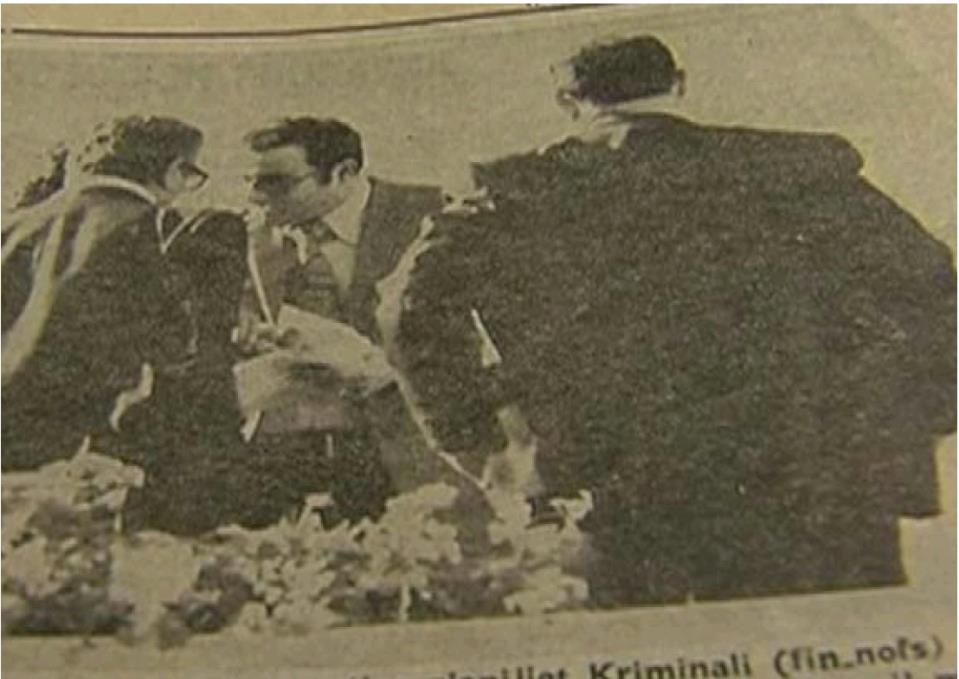Karin Grech's murder, although one of the most high-profile of the troubled 1970s and 1980s, was the third case in which the victim died because of a bomb.
Eddie Attard explained that there had been cases which involved the use of bombs, but by December 1977, only three had been fatal. The first case dates back to 1969, when a bomb claimed the life of a 32-year-old man in Paola. The case remains unsolved. In March 1972, a 31year-old was killed after her husband planted a bomb on the washing line. Josephine Formosa, the victim, was the first woman to be killed by a bomb in Malta. The culprit was arrested and the case was solved.
Fifteen-year-old Karin Grech was the third victim to be killed by a bomb, on 28 December 1977.
Karin Grech's case 'unique'
Historian Eddie Attard, who has penned multiple books on the history of crime on the Maltese Islands, explained that Grech's case can be considered 'unique'.
"It was unique in that this bomb had been placed in a package. We sometimes refer to it as a letter bomb. But to be clear, the bomb was placed in a package. It was right after Christmas and Karin's father, Professor Edwin Grech, used to receive a couple of gifts because of his profession."
On 28 December of 1977, the Grech family received one particular package. Karin and her brother believed it to be another Christmas present. Their father was not home yet and the young Karin opened the package instead.
"The children probably thought that the package contained some Christmas present. She opened the package and found a fountain pen." Karin was holding the package close to her stomach when the bomb went off. Her brother was also hit by bits of metal which flew off the package. Metal fragments hit him in the eye and he had to be flown to a London hospital for treatment. Luckily, he did not lose his eye.
At the time of this tragic incident, another doctor had also just received a package. "Doctor Paul Chetcuti Caruana, a Labour Party MP at the time, received a very similar package at his house in Mosta. Investigators later realised that the same persons who delivered the package to the Grech family had prepared another one for Chetcuti Caruana."
The historian explained that there were two plausible motives behind the explosion. The first one was related to the strike by medical doctors and to understand this, one has to put it in the context of what was happening on the island.

Back in 1977, Professor Edwin Grech was a gynaecology consultant in the UK. Meanwhile, doctors in Malta were on strike following a disagreement between the MAM (Medical Association of Malta) and the government of the time. The dispute turned nasty and the government decided to lock strikers out of hospitals. This caused further outrage with medical students who were also affected by the strike.
The Maltese government had asked Edwin Grech to return to Malta to head the Gynaecology Department at St Luke's Hospital. He decided to come back to Malta for the duration of the dispute. Grech ended up being labelled a strikebreaker as he was assisting the government in the heated period of the dispute.
"Experts who were brought to Malta to follow the case noted that the bomb-maker was almost certainly replicating other bombs he had seen. They claimed that although professionally made, the bomb was not made by an expert."

The Maltese national who lived in Australia
Attard said that the investigators on the case tried to chase every possible lead. They checked with all the stationeries in Malta and Gozo in search for the kind of paper which had been used to wrap the parcel, and looked for the same kind of batteries used to trigger the explosive.
The police also looked into the possibility that the attack was planned or commissioned by a former patient of Professor Grech. "He was a gynaecol-
ogist after all, and police were trying to find out whether there had been any trouble with some mother in some particular case. It appears that this was not the case."
But the police did manage to find an interesting lead in this enigmatic case. Experts brought in from overseas managed to lift fingerprints off the package. "There was this theory that the person behind the attack could have been a man who used to live in Australia but was in Malta at the time of the incident."
The police had tried to intercept this man in Australia but were unsuccessful. Later, this person was found by a journalist who was working on the case. "The police commissioner had flown all the way to Australia and checked the man's fingerprints but it resulted that they were not his." This police had hit a brick wall.

Statute of limitations expired
There is a debate on whether the statute of limitations on this case should be considered expired since decades have passed and the case remains unsolved. Attard said that on the 25th anniversary of Karin Grech's murder, a local newspaper had started this controversial debate. "There were mixed ideas from various lawyers on the matter. Time passed and the case went cold." He did, however, mention how there were cases which had been solved after quite a number of years. The record so far is of a case solved 21 years after it had initially been reported. Forty years have now gone by since Karin Grech's murder.

Missing files
Back in November, Karin Grech's family filed a judicial protest claiming that 'crucial evidence' had gone missing, holding the attorney general, the police commissioner and the director-general of courts responsible for the disappearance of a crucial piece of evidence. Later that same day, the police commissioner and the director-general filed a counter judicial protest reassuring the family that the evidence on Karin Grech's case was safe and sound.